5 Ways to Increase Your Cash Flow
The saying “cash is king” rang true when 6% interest in a savings account was a possibility. Today, with interest rates near historic lows, it’s cash flow that’s fueling wealth creation. If you have plenty of cash left over each month after meeting your financial obligations, you have funds you can put to work. You can build an emergency fund or max out your retirement accounts. You could start or invest in a business, or work towards any other financial goals you may have. However, improving your cash flow situation is not always a straightforward endeavor. Many people will see their income grow over the years but without a proportional improvement to their cash flow. Why? They fall victim to the ‘lifestyle creep,’ and their spending grows just as quickly as their income. Finding ways to increase your cash flow requires a holistic approach that examines both income generation and expense management. With that in mind, here are five ways to increase your cash flow.
Reduce Your Expenses
Reducing your expenses may seem blatantly obvious. Still, it’s one area of your financial picture that you have complete control over. You can choose where you live, where you buy your groceries, how you have fun, and what lifestyle and savings goals you prioritize.
However, most people struggle with controlling their expenses because they haven’t established the necessary habits. They try to use budgeting systems that are too complicated, and spending is often fueled by instant gratification.
The quickest path to success with budgeting is to simplify as much as possible and automate where you can. The bucket budgeting method incorporates both these aspects, and it works like this:
Bucket 1 – Primary Checking Account – Fixed Expenses. Have your paychecks deposited to this account and autopay all your fixed expenses from it, such as your mortgage, cell phone, insurance, utilities, etc.
Bucket 2 – Secondary Checking Account – Variable Expenses. Use this account for discretionary expenses such as dining out, groceries, entertainment, travel, etc. Set a weekly spending limit and set up an automatic weekly transfer in that amount from your primary checking account. The best aspect of this setup is it eliminates the need to track every little expense. Once you’ve determined your weekly budget, all you need to do is ensure you don’t spend more than the overall amount you’ve allotted. Any money leftover can be added to next week’s budget or moved to savings.
Bucket 3 – Savings & Investment Accounts. This bucket is for setting aside money for future goals. Your emergency fund, retirement accounts, 529’s, down payment fund, etc. all go here. Set up an automatic monthly transfer from your primary checking for these goals.
Quick Tip: After you’ve budgeted for all your fixed expenses and necessary variable expenses (groceries, gas, etc.), carve out your savings goals. The leftover money you can allot to your weekly discretionary spending budget. This way, you are prioritizing saving and paying yourself first over unnecessary spending.
Find a Side Hustle
If you can’t spend less money, make more money. If a raise is nowhere near on the horizon, a side hustle can be a great way to boost your income and increase your cash flow. More and more people are leaving the traditional 9-5 world in favor of the gig economy. The gig economy is booming.
With the rise of freelancing platforms, opportunities to earn money for your expertise has only gotten easier. Do you have a hidden talent or skill set that’s not already in use? Maybe you’re a great writer, graphic designer, or programmer and could do work for hire on one of these platforms. Find something exciting that you’re skilled at, get creative, and find a way to monetize it.
Avoid or Pay Off Bad Debt
Isn’t all debt bad? The short answer is no. There is such a thing as “good debt.” “Good” debt helps you build wealth or further your financial goals. Examples of good debt could include a mortgage or student loans with affordable interest rates.
A mortgage adds an appreciating asset to your balance sheet. Student loans allow you to get a college degree and ideally earn more throughout your career. All of this should be done within reason, of course, as you never want to over-leverage yourself or borrow foolishly without doing your homework first.
Bad debt, on the other hand, should be avoided altogether. Examples of bad debt include financing an expensive car (a depreciating asset) or racking up large balances on credit cards. Credit cards, in particular, can get you in a tremendous amount of trouble. They tend to come with very high-interest rates that only roadblock your path to paying them down.
Bad debt can quickly turn into a vicious cycle where you can’t afford large enough payments to put a dent in the balance. The interest keeps accruing, you don’t make progress on paying it off, and all your cash flow goes towards making payments each month. It never makes sense to hold a balance on a credit card, and making it a habit to pay them off monthly will ensure you avoid any debt problems in the future.
If you’re currently working towards paying off credit card debt, try the avalanche method by allocating the majority of your payments towards the highest interest rate card first. Work your way from the highest to the lowest interest rates as you pay them off. Mathematically this will result in the fastest elimination of your debt. Also, reduce or eliminate your credit card use if necessary to avoid ending up in credit card debt again.
Refinance or Consolidate Debt
If debt’s got you down and is eating up too much of your cash flow, consider refinancing or consolidating your debt. Refinancing is the replacement of an existing debt obligation with another debt obligation under different terms. Consolidation is the merging of several debt obligations into one payment that helps to simplify, reduce interest payments, and enable you to pay off your debt faster.
If you are interested in pursuing a refinance or consolidation, make sure to do your homework first. The result should be beneficial to your long-term financial picture, not put you in a more difficult position.
For example, if you’re considering refinancing federal student loans to a private lender, it could reduce your monthly payments. However, if you’re eligible for public student loan forgiveness, you’d be forfeiting your right to apply after ten years of qualifying payments by converting to a private lender. If loan forgiveness saves you the most money in the long-run, refinancing would probably not make sense, which is why you should analyze ALL your options and how they may impact you and your goals before making any decisions.
Automate your Finances
Automating your finances can serve numerous purposes. For one, it simplifies and removes most of the hassles associated with managing your finances. Knowing that you’re making progress towards financial goals provides peace of mind. You’re free to focus on the aspects of your life that are most important to you.
Secondly, it can save you money! Bills and debt obligations always get paid on time, thereby eliminating any costly late fees. If you automate your savings, you’ll consistently meet your monthly savings goals without even needing to think about it.
Lastly, automating your finances forces you to ensure you always have enough funds in your checking account for automatic transfers. In turn, it forces you to be more conscious of the money you spend to ensure you’re not overspending.
The Bottom Line
If you’re struggling to increase your cash flow, try one of these methods. Start with a few small changes first. Eventually, those small changes will turn into habits if you stick with them long enough. Small changes develop into habits over time, and positive financial habits create long-term success.
Securities and Advisory Services offered through Calton & Associates, Inc., dba Forefront Wealth Partners, Member FINRA/SIPC. OSJ: 2701 N. Rocky Point Drive, Suite 1000, Tampa, FL 33607 (813) 264-0440. Calton & Associates, Inc. does not provide legal or tax advice. Forefront Wealth Partners and Calton & Associates, Inc. are separate entities.





